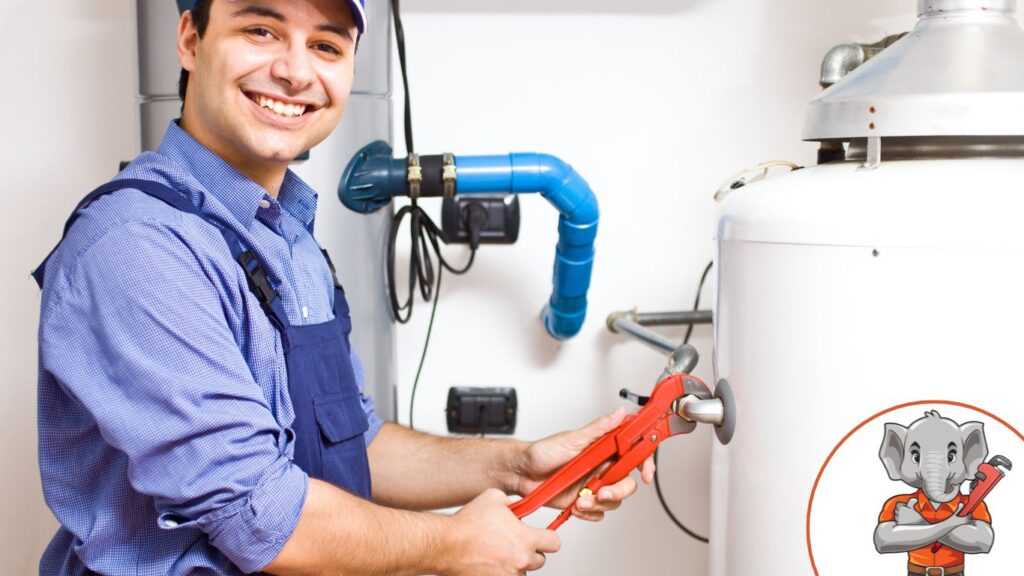Keep Your Hot Water Heater Healthy with these 15 Tips from Plumbers
A reliable hot water heater is essential for any home, providing comfort and convenience every day. At Youngblood Plumbing, we understand the importance of maintaining your water heater to ensure it runs efficiently and lasts longer. Whether you have a gas, electric, or tankless water heater, these 15 water heater maintenance tips will help you extend your hot water heater’s life and prevent common problems.
1. Regularly Flush Your Water Heater
Over time, sediment buildup can accumulate in your water heater, reducing its efficiency and lifespan. Flushing your water heater at least once a year helps remove these sediments, ensuring your heater operates smoothly. To flush your water heater, turn off the power or gas supply, attach a hose to the drain valve, and let the water flow out until it’s clear.
2. Check and Replace the Anode Rod
The anode rod protects your water heater from corrosion by attracting corrosive elements in the water. Inspect the anode rod every two years and replace it if it’s significantly corroded or worn out. This simple step can dramatically extend the life of your hot water heater.
3. Adjust the Water Heater Temperature
Setting your water heater to the right temperature can prevent scalding and reduce energy consumption. The recommended temperature is typically around 120°F (49°C). Lowering the temperature not only saves energy but also reduces the risk of overheating and extends the heater’s lifespan.
4. Monitor Water Heater Pressure
Excessive pressure can cause leaks or even explosions in extreme cases. Install a pressure relief valve on your water heater and regularly check it to ensure it’s functioning correctly. If you notice frequent pressure releases, it might indicate a problem that needs professional attention.
5. Inspect for Leaks Regularly
Water heater leaks can cause significant damage to your home if left unchecked. Periodically inspect the base and connections of your water heater for any signs of moisture or dripping. Early detection can prevent costly repairs and water damage.
6. Listen for Unusual Noises
Strange noises like popping, cracking, or rumbling can indicate sediment buildup or other issues within your water heater. If you hear unusual sounds, it’s a sign to flush your heater or consult a professional plumber to diagnose the problem.
7. Check for Unpleasant Smells
A rotten egg smell coming from your hot water can signal bacteria growth in your water heater. Flushing the tank and increasing the temperature slightly can help eliminate these odors. If the smell persists, consider replacing the anode rod or seeking professional help.
8. Test the T&P Valve
The temperature and pressure (T&P) valve is a critical safety feature on your water heater. Test it annually by lifting the valve’s tab to ensure water flows freely. If the valve doesn’t release water or leaks continuously, it needs to be replaced immediately.
9. Insulate Your Water Heater and Pipes
Adding insulation to your water heater and surrounding pipes can improve efficiency by reducing heat loss. This simple upgrade can lower your energy bills and keep your hot water warmer for longer periods.
10. Seal the Area Around the Water Heater
Ensure that the area around your water heater is free from moisture and debris. Proper sealing prevents rust and corrosion, helping to maintain the integrity of your hot water heater.
11. Consider Upgrading to a Tankless Water Heater
Tankless water heaters offer higher efficiency and longer lifespans compared to traditional models. If your water heater is old or inefficient, upgrading to a tankless system can save energy and provide endless hot water on demand.
12. Regularly Inspect the Expansion Tank
The expansion tank helps manage water pressure fluctuations. Check it annually for signs of water buildup or leaks. A malfunctioning expansion tank can lead to pressure issues and potential damage to your water heater.
13. Maintain Proper Water Heater Age
Water heaters typically last between 10 to 15 years. If your hot water heater is nearing the end of its expected lifespan, start planning for a replacement to avoid unexpected failures and ensure continuous hot water supply.
14. Schedule Professional Water Heater Installation and Replacement
Proper installation is crucial for the efficient and safe operation of your water heater. When it’s time to install or replace your water heater, trust the experts at Youngblood Plumbing for professional service and quality workmanship.
15. Perform Annual Plumbing Inspections
An annual plumbing inspection by a professional plumber can identify potential issues with your water heater and other plumbing systems. Regular inspections help maintain your water heater’s efficiency and prevent major problems down the line.
Maintaining your hot water heater doesn’t have to be complicated. By following these 15 water heater maintenance tips, you can ensure your system runs smoothly, efficiently, and lasts longer. Regular upkeep not only prevents costly repairs but also ensures you always have hot water when you need it.
At Youngblood Plumbing, we are dedicated to providing reliable and fast plumbing services to homeowners in Federal Way, WA, and the surrounding areas.
Get Your Water Heater Running Like New!
Whether you need routine maintenance, a water heater flush, or a full replacement, our team of experienced plumbers is here to help 24/7. Don’t wait until a small issue becomes a major problem—contact us today at (206) 304-6154 to schedule an appointment or learn more about our services.
Frequently Asked Questions (FAQ)
How often should I flush my hot water heater?
Flushing your hot water heater at least once a year is recommended to remove sediment buildup. This helps maintain efficiency and prolongs the life of your water heater. If you notice unusual noises or reduced performance, you might need to flush it more frequently.
What is the purpose of the anode rod in a water heater?
The anode rod is designed to prevent corrosion inside your water heater tank. It attracts corrosive elements in the water, protecting the tank from rust and extending the unit’s lifespan. Inspecting and replacing the anode rod every two years is a key maintenance step.
When should I replace my water heater instead of repairing it?
Water heaters generally last between 10 to 15 years. If your water heater is approaching this age, has frequent leaks, or requires multiple repairs, it might be more cost-effective to replace it. Upgrading to a tankless water heater can also provide better efficiency and longer service.
How can I improve the efficiency of my water heater?
Improving efficiency can be achieved by regularly flushing the tank, insulating the water heater and pipes, setting the temperature to 120°F, and replacing the anode rod as needed. Additionally, upgrading to a high-efficiency or tankless water heater can significantly reduce energy consumption.
What should I do if my water heater is making strange noises?
Strange noises like popping or rumbling usually indicate sediment buildup. Try flushing your water heater to remove the sediment. If the noise persists, contact a professional plumber to inspect and address the issue before it leads to more significant problems.
For more plumbing tips and services, visit our General Plumbing Services page or learn about our Water Heater Installation services. Trust Youngblood Plumbing to keep your home’s plumbing running smoothly and efficiently.
Contact Us Today!
Need expert water heater maintenance or repair? Call Youngblood Plumbing at (206) 304-6154 or book an appointment online 24/7. Our family-owned and operated team is here to provide reliable and fast plumbing services to homeowners in Federal Way, WA, and surrounding areas.




